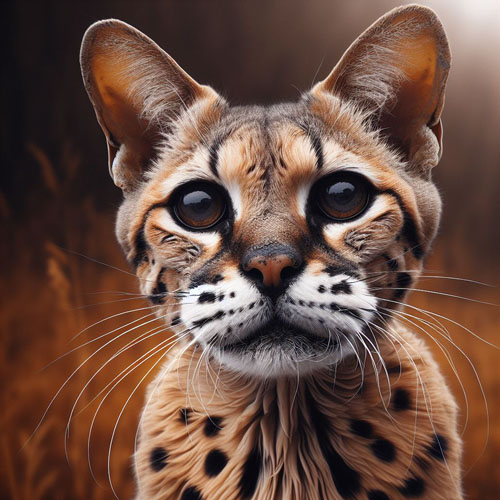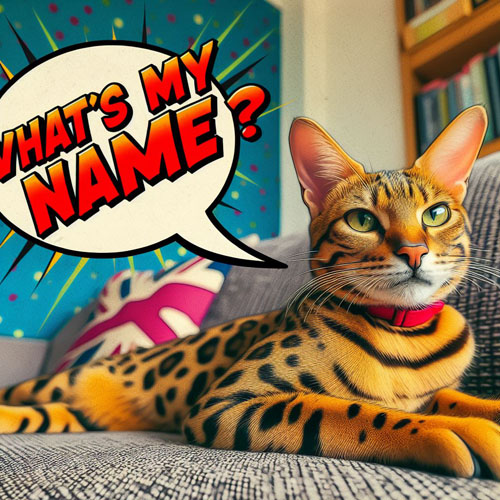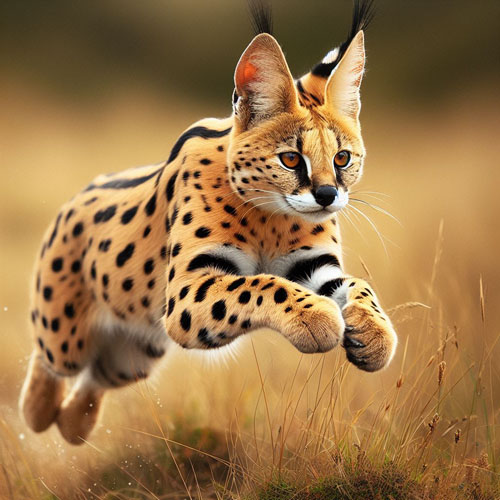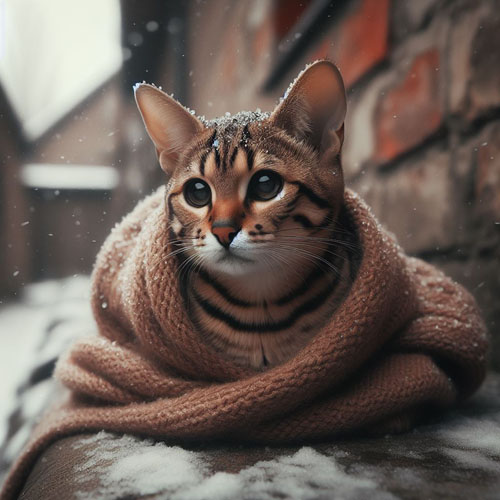The African Serval: A Majestic Feline And Founding Ancestor of the Savannah Cat
In the vast savannah grasslands of Africa, a graceful feline known as the African Serval prowls silently. With its striking appearance and unique features, the African Serval has captivated the attention of cat lovers and researchers alike. Considered as the founding ancestor of the popular Savannah cat breed, this magnificent creature embodies elegance and agility in its natural environment.
The African Serval, scientifically known as Leptailurus serval, is a medium-sized wild cat that can be found across various countries in Africa, including Kenya, Tanzania, and South Africa. It is highly adaptable to different habitats, from open grasslands to marshy areas, making it a versatile and resourceful hunter.
The first notable characteristic of the African Serval is its stunningly beautiful coat. Its fur is adorned with bold black spots, arranged in intricate patterns across a tawny background. This unique coat pattern not only provides camouflage in its natural habitat but also adds to its visual appeal.
Standing at around 20-24 inches at the shoulder, the African Serval has a long, slender body built for agility and speed. Its long legs and large, rounded ears are particularly distinctive features. These ears, often referred to as “olfactory radar,” are the largest in relation to body size among all cats. They allow the African Serval to detect the slightest sounds of potential prey, such as small rodents and birds, even in the dense grasslands.
Interestingly, the African Serval possesses a remarkable skill when it comes to hunting. It has the ability to leap up to ten feet in the air, using its powerful hind legs to launch itself towards unsuspecting prey. This impressive leaping ability, coupled with its keen sense of hearing, enables the African Serval to catch birds in mid-flight, making it one of the few feline species capable of this feat.
The African Serval is primarily a solitary animal, only coming together with others during mating season. It communicates through a variety of vocalizations, including chattering, hissing, and purring. Despite its solitary nature, the African Serval is not aggressive towards humans and rarely poses a threat.
Due to its unique characteristics, the African Serval has gained popularity as a foundation breed in the creation of a hybrid domestic cat known as the Savannah cat. Savannah cats are a crossbreed between the African Serval and a domestic cat, resulting in a magnificent feline with an exotic appearance. These hybrid cats, known for their loyalty and intelligence, have become increasingly sought after as pets.
However, it’s important to note that owning a Savannah cat requires dedicated care and understanding of their complex needs. The striking resemblance to their wild ancestor brings along certain challenges, including the need for sufficient living space, a controlled diet, and regular mental and physical stimulation.
Conservation efforts are in place to protect the African Serval in its natural habitat. Organizations such as the African Wildlife Foundation and local authorities work together to preserve the ecosystems and raise awareness about the ecological importance of these stunning felines.
In conclusion, the African Serval is truly a captivating feline, both in its natural habitat and as the founding ancestor of the Savannah cat breed. Its graceful appearance, remarkable hunting abilities, and unique characteristics make it a symbol of Africa’s rich wildlife. While the African Serval continues to inspire awe and intrigue, it is crucial that we appreciate and protect these majestic creatures for generations to come.





